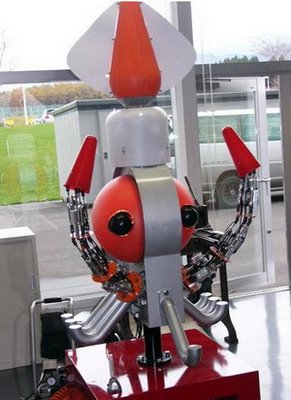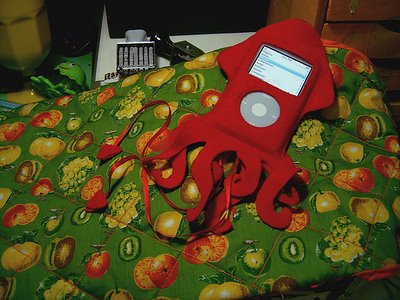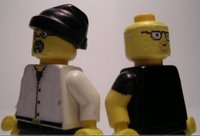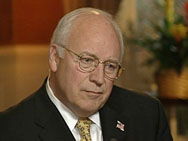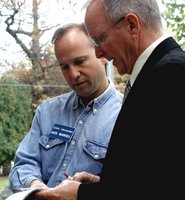The Supreme Court Debates Climate Change
JUSTICE SCALIA: To be sure, carbon dioxide is a pollutant, and it can be an air pollutant. If we fill this room with carbon dioxide, it could be an air pollutant that endangers health. But I always thought an air pollutant was something different from a stratospheric pollutant, and your claim here is not that the pollution of what we normally call "air" is endangering health. That isn't, that isn't -- your assertion is that after the pollutant leaves the air and goes up into the stratosphere it is contributing to global warming.(You can download the transcript here.)
MR. MILKEY: Respectfully, Your Honor, it is not the stratosphere. It's the troposphere.
JUSTICE SCALIA: Troposphere, whatever. I told you before I'm not a scientist.
(Laughter.)
JUSTICE SCALIA: That's why I don't want to have to deal with global warming, to tell you the truth.
I can understand that Justice Scalia wishes that this case hadn't come before the Court; I would have prefered that our national government had dealt with the issue instead of wishing it would go away. Writing in Slate, Dahlia Lithwick compares EPA's reluctance to deal with climate change with the recalitrance of her young child:
Now, maybe it's because I have a toddler at home, but the EPA's argument, presented by Deputy Solicitor General Gregory Garre, quickly sounds very familiar. 1) I can't clean it up; 2) Even if I could, I don't want to clean it up; 3) You can't make me clean it up; and 4) China is making an even bigger mess. How come China never has to clean it up? When and if all that fails, the EPA, like my son, just puts its hands over its eyes and says there is no mess in the first place.I'm not sure how much of an impact this case will have. Even if the Supreme Court finds for the petitioners, EPA will probably not promulgate new rules until the next president takes office. In the meanwhile, Congress is likely to force the issue on President Bush, who had promised to take action on carbon dioxide emission six years ago.
